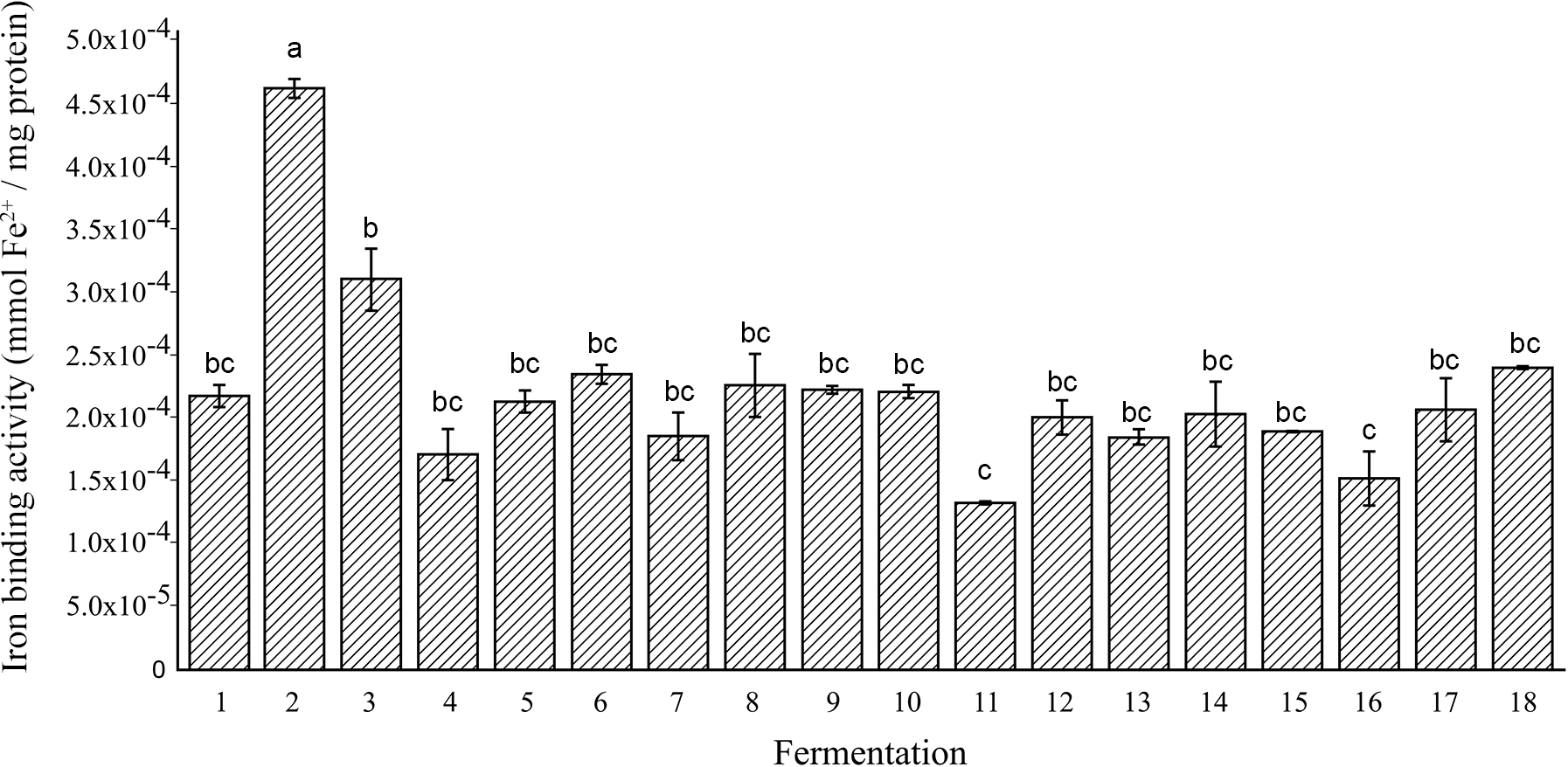 |
|
Fermented milks have been associated with health benefits for a long time, which could arise from indirect effects such as the production of bioactive peptides released by lactic acid bacteria from milk proteins. In this work, the production of iron binding and antithrombotic peptides from milk fermented with Lactobacillus casei Shirota under different fermentation conditions of pH and temperature was investigated. Lactobacillus casei Shirota produced both iron binding and antithrombotic peptides in the different fermentations. The highest iron binding activity, 4.62x10-4 mmol Fe2+/mg protein, was observed at pH 6.0 at 39.5 °C at 12 h. While, the highest antithrombotic activity was found in three fermentations different with the following conditions: pH 6.0 at 39.5 °C as well at 12 as at 20 h, and pH 6.5 at 42 °C at 12 h; with clot inhibition between 62.0 and 79.1%. The results here obtained are useful for the adequate selection of fermentation milk conditions to produce bioactive peptides by L. casei Shirota.
Keywords: bioactive peptides, iron binding activity, antithrombotic activity, Lactobacillus casei Shirota.
|
|
 |

